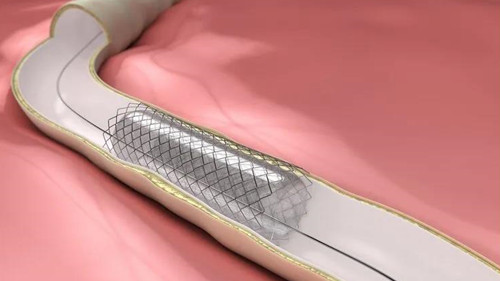Heart Stent Blocked Again
Is there a high probability that the heart stent will block again?
Stent is an emergency method for the treatment of coronary heart disease. It can open up the blocked part of the blood vessel, relieve myocardial ischemia, save the life of the patient, and will not shorten the lifespan. But this does not mean “get it right once and for all.” The success of heart stent surgery does not mean that coronary heart disease is cured.

There are generally two cases of re-stenosis after stent surgery, one is restenosis at the site where the stent is implanted, and the other is narrowing of other blood vessels. There are many reasons for restenosis, including the following:
1. Bracket material
There are three common stents, bare metal stents, drug-coated stents and degradable stents.
After the bare metal stent is implanted in the location of the coronary artery disease, oral antiplatelet drugs are required to control thrombosis, but the problem of intimal hyperplasia cannot be solved, so there is still a 30%-40% risk of restenosis within 1 year.
After the drug-coated stent is implanted, the drug will be slowly released to inhibit intimal hyperplasia, and the probability of restenosis can be controlled below 5%.
The degradable stent will be completely degraded after 2-3 years after implantation, will not affect the body, and the risk of vascular restenosis will be significantly reduced. However, some studies have found that the degradable stent has a higher risk of local thrombosis within 3 years than the first two stents, and the safety needs to be further improved. It is not recommended to use it in key parts such as the main trunk and proximal blood vessels.
2. There is no standardized medication
After stent surgery, the patient’s symptoms will gradually improve, but if the medication is not standardized, the risk of restenosis will be greatly increased.
3. Bad lifestyle
Poor lifestyle habits, such as smoking, irregular work and rest, high-fat diet, lack of exercise, and failure to control chronic diseases, can also lead to restenosis of blood vessels.

